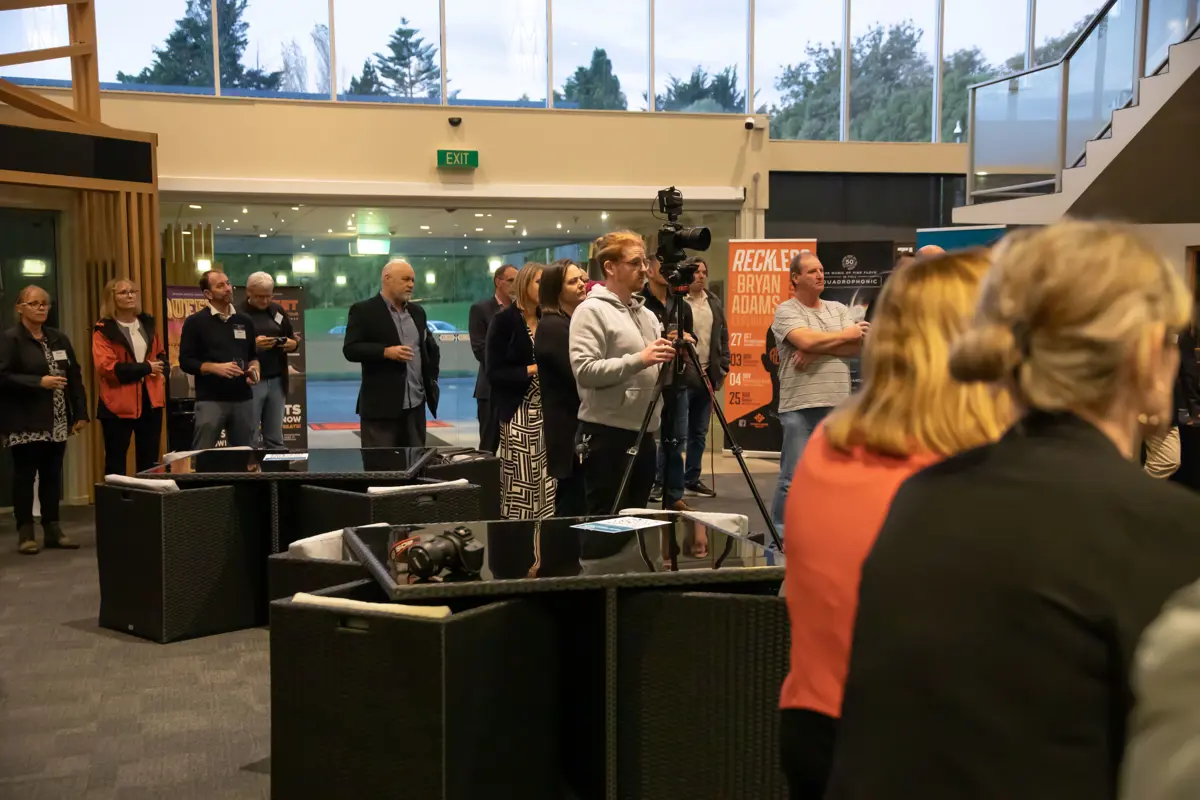Welcome to Pakihi Toitū o Kāpiti, a local network and resource providing local business information about sustainability. Together we can create a more sustainable business world.
Sustainable business practices look different for every sector. Here you can explore tools, read case studies, access resources and funding sources and join the network so you can connect with other sustainably focussed businesses.

Our aim is to provide leadership for innovation and growth in sustainable business practices for the social and economic good of Kāpiti.
In early 2022, the Economic Development Team at the Kāpiti Coast District Council convened a sustainability forum, bringing together local businesses. The forum delved into topics surrounding sustainability, exploring its implications for businesses operating in Kāpiti. Through collaborative dialogue, participants identified key barriers hindering environmentally sustainable practices among businesses in the region. Among the priorities highlighted was the necessity for a platform offering tailored guidance and support for local businesses.
Additionally, waste minimisation emerged as a focal point, with proposed initiatives including the introduction of soft plastics recycling and food waste composting projects.
The group prioritised the establishment of a network with the following purpose statement:
To provide leadership for innovation and growth in sustainable business practices for the social and economic good of Kāpiti.
It provides a simple and local place to access information to support businesses' journeys toward sustainability, in terms of lower ecological and emissions footprints. Explore the tools, read the case studies for local stories, access information about funding sources and join the network so you can connect with other like-minded businesses. The sustainable business network will help the business community to collectively work together.
Where to Start
The first step is to have a Sustainability Action Plan or Policy for your business. At its heart, a sustainability policy is an organisation’s commitment to practices and standards that cover all areas of sustainability.
Having a sustainability policy can have positive financial impacts. It may help streamline business processes, which may create less waste and reduce energy use. A sustainability policy can also increase your standing with stakeholders, and improve your brand recognition, giving your organisation a competitive advantage.
The Pakihi Toitū o Kāpiti network is all about connecting you with businesses locally to build a supportive and inspiring sustainability network. The network aims to bring together the local business community and work towards becoming more sustainable. Stay up to date with sustainable business information.
- Get access to tools and resources to support your sustainability progress
- Connect with other businesses to share knowledge and stories around sustainable processes
- Be invited to industry events about sustainability
- Access to the Pakihi Toitū o Kāpiti Badge, highlighting your sustainable focus

Acknowledging Kāpiti businesses that are on a pathway to environmentally sustainable practices.
The needs of businesses starting out on a sustainability journey can be challenging. These tools and resources are designed to provide quick links to useful tools to support your business sustainability initiatives, check out what is available both locally and nationally.
Toitū Envirocare
Toitū Envirocare helps businesses achieve sustainability through carbon and environmental certification programs. They provide science-based tools and services to measure, manage, and reduce carbon footprints, ultimately promoting a collective movement toward a sustainable future. Their offerings include climate positive certification, environmental programs, and technical tools for diverse industries.
Sustainable Business Network
The Sustainable Business Network offers extensive support for businesses seeking to enhance their sustainability. Ultimately, the organisation works to accelerate the transition to an equitable and sustainable future. Its goal is to change the systems that render the dominant economic system so extractive, unfair, and unsustainable.
Waste Levy Fund
Kāpiti Coast District Council has a Waste Levy Fund available for business waste reduction projects for existing businesses to implement measures that will lead to long-term and measurable minimisation of waste from the business’ operations.
Tourism Industry Aotearoa
The vision of the Tourism Sustainability Commitment is to lead the world in sustainable tourism. Toitū te taiao, toitū te tāpoi. E kōkiri ana e Aotearoa. The New Zealand Tourism Sustainability Commitment aims to see every New Zealand tourism business committed to sustainability by 2025. Sustainability covers not only environmental, but also community, visitor and economic benefits. Akiaki – Advancing Tourism is the TIA's online learning programme which focuses not just on minimising harm, but making a positive contribution so that tourism gives back more than it takes.
Material Circularity Indicator (MCI) calculator | thinkstep-anz
A circular economy is an economy where businesses design out waste and pollution, keep their products and materials in use, and regenerate natural systems. It aims to keep high value products and materials in use for as long as possible, through repairing and maintaining, reusing, refurbishing, remanufacturing, and recycling. The Material Circularity Indicator calculator can get you started with a simplified look at your product – without having to collect lots of data.
Use it to add circular economy thinking to the products you’re producing and the materials you’re using.
The Climate Action Toolbox (NZ)
Starting your climate action journey is easy with the Climate Action Toolbox.
Complete a simple self-assessment. Explore action ideas and create a plan. Use the emissions calculator to understand where your emissions come from. It is especially suitable for small and medium-sized businesses. It may also be helpful to larger businesses starting out.
The Toolbox focuses on five key areas – transport (moving people and goods), office operations, site operations and equipment, and the design and making of products.
Case Studies
Events
Discover Exciting Events in Our District
Our district is proud to host a wide array of business events designed to foster growth, collaboration, and success.
